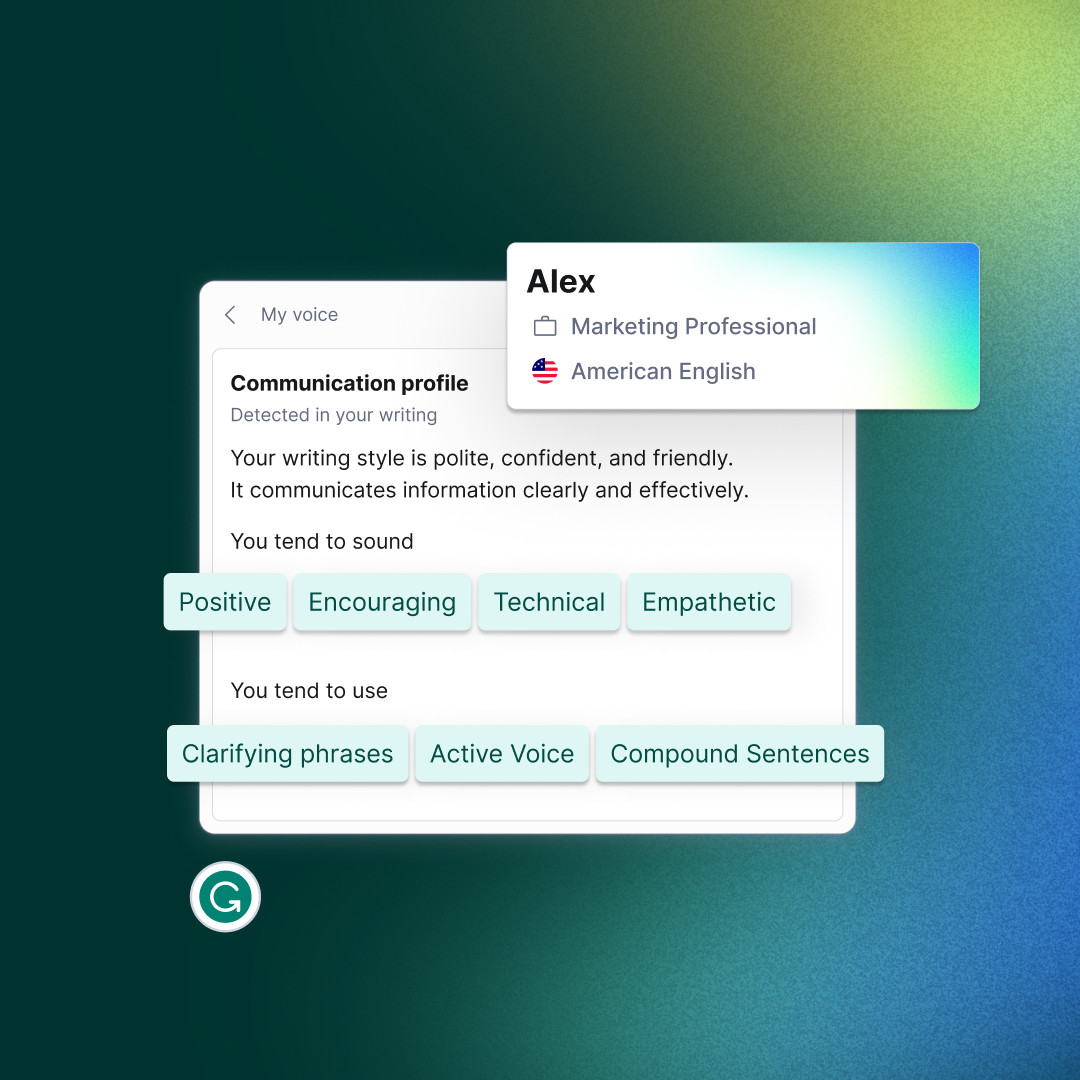As generative AI becomes embedded in the platforms we use every day, debates are swirling around who should get credit — and compensation — for AI-generated works.
YouTube is in the process of hashing out licensing agreements with record labels to use musicians’ voices to create new music in their styles. Meanwhile, some art-generating AI platforms are figuring out ways to pay artists for their contributions to the data used to train the platforms’ AI models.
But what about text? Should — and if so, how should — writers be recognized and remunerated for AI-generated works that mimic their voices?
Those are questions that are likely to be raised by a feature in Grammarly, the cloud-based typing assistant, that’s scheduled to launch by the end of the year for subscribers to Grammarly’s business tier. Called “Personalized voice detection and application,” the feature automatically detects a person’s unique writing style and creates a “voice profile” that can rewrite any text in the person’s style.
“Because Grammarly works across apps and tools, we can understand a user’s unique style and preferences in the places they communicate to generate a personalized profile,” Tal Oppenheimer, head of product for Grammarly’s client apps, told TechCrunch in an email interview. “We generate a person’s profile as they passively use our product.”
Oppenheimer says that each profile, which comes with an AI-generated description that highlights what Grammarly sees as the defining characteristics of the person’s style (e.g. “positive,” “encouraging”), can be customized to a certain degree. Users can discard elements such as tone and style choices — say, a tendency to use active voice and compound sentences — that they believe don’t accurately reflect the way they write.

“As this is the first release of our personalized voice features, we’ll continue to refine them over time and consider ways to make them even more personalized to customers and their needs,” Oppenheimer said.
Grammarly pitches the tech as a way for writers to leverage context to “make [their] writing sound more personal.” But this writer worries about how it might be used in considerably less charitable ways.
Imagine a company tapping a Grammarly voice profile while a writer’s on leave — or after they’ve been let go — to publish blog posts under their byline without their approval and without compensating them. Or, picture a Grammarly voice profile being used to impersonate someone in a sophisticated phishing attempt.
It’s not as far-fetched as it sounds. Author Jane Friedman discovered in August that new books were being sold on Amazon under her name — new books that she didn’t write, and that appeared to have been generated by AI. (Amazon later removed the fake books and said that its policies prohibit such imitation.)
Grammarly isn’t the first to bring to the fore the issue of writer protections where they pertain to generative AI, of course. Thousands of authors recently signed an open letter decrying generative AI technologies that “mimic and regurgitate” their “language, stories, style and ideas.” Writers in California and New York, meanwhile, have gone a step further, suing AI startup OpenAI — which they say trained text-generating AI on their work without permission — over alleged IP theft.
Now, to be fair to Grammarly, not just anyone can access a Grammarly voice profile. At least at launch, individual users can only use their corresponding voice profile — not anyone else’s. And they can’t be exported.
I do worry, though, about how voice profiles might evolve down the line given Grammarly’s emphasis on cost savings in its marketing materials. Conceivably, in the pursuit of cost cutting, a Grammarly-subscribed business will eventually want access to all of its writers’ profiles. Will Grammarly deny them? Who’s to say?
For her part, Oppenheimer stressed that voice profiles “aren’t designed to replace anybody.”
“Rather than imitate them, [voice profiles] helps [writers] learn about how they sound, create more personalized output and write in a more authentic way.”
Call me skeptical, but I’m very wary.
Personalized voice detection and application joins Grammarly’s other generative AI features, many of which are entering general availability this week. The company, which has more than 30 million users and over 70,000 teams on its platforms, says that users are creating over 12 million pieces of content weekly with the features.































Comment